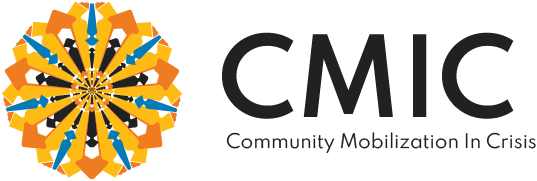When we first started, we had a large project with the European Union, for three years and it was practically the foundation period of the Grassroots Jerusalem organization, so through this funding, we were of course required to build the organization according to the European standards, which part of them were good, but they didn’t necessarily fit the local culture, nor the wants and the needs of the local communities, so after we finished this project and we reached the time where of course the funding was over, we took the decision not to repeat this experience, and not to receive the funding of a large project, but to focus on building the organization according to our strategy, our vision, and the vision of the local people, since at the end of the day what we want is to respond to their needs and priorities and not to the international and western dictates, that always come with certain conditions, political conditions according to their point of view.
So we took, let’s call it a “break”, from funding of this type. At this period, we worked on a voluntary basis on the organization, we wrote our strategy, in which we decided on what we need to work on, and on what the city needs, and we decided that we ask for donations according to our own strategy and donations, without political pre-conditions, otherwise we wouldn’t accept funding from outside. So the idea was that we would break the circle where there are local organizations chasing funding and getting stuck in projects that last from one to three years usually, and after that they would try to find the next project, local organizations therefore often don’t succeed in developing there own strategy and vision, but continue to keep working according to standards from outside.
During those two years we built the strategy, and we succeeded since we saw that there is interaction, we received the “core funding” from many sources, we developed our ways of self-funding by selling our own products: books, maps, we give political tourism tours to the city’s visitors, whether delegations that come to the city or conventional tourism, so today we cover around 30% to 40% of our annual budget internally, and the rest of the funding we receive it from sources that accept us from the political dimension, and that are also concerned about the sustainable development of the city and that give funding in a non-conditioned way to the organization today, and the idea is to expand this model to the other organizations here in Palestine, because today, as I said, there is a circle controlled by the foreigner, controlled by the larger international organizations, especially in Jerusalem, because in Jerusalem, which is under occupation, the Palestinian National Authority is not allowed to be active, therefore there is no father, mother or leader for the people of Jerusalem other than themselves.
So this itself created a void that was filled by the international organizations, but we think that the local residents should lead the action and the work and decide what are the priorities for Jerusalem, so the idea is that local communities are empowered to lead, and that they tell anyone who would like to participate their own priorities.
